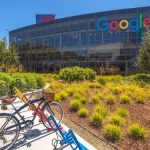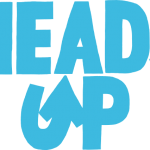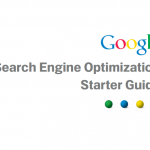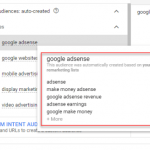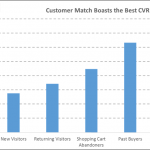Google Strengthens Its Lead
by John Motavalli, Columnist, August 3, 2016

Two seemingly unrelated items surfaced briefly in the news. The New York Times Co. announced dismal quarterly results, with a significant drop in digital advertising revenue. And Google announced Smart Bidding on DoubleClick Search, which covers all automated bidding and allows clients to manage bids and bid adjustments automatically, further refining its “machine learning” capabilities.
These two developments dramatically highlight an ongoing trend: The inability of virtually all online publishers to keep up with Google and Facebook in terms of machine-assisted programmatic advertising. The gap keeps widening.
Buried in the Times’ second quarter results was the remarkable fact that digital advertising revenue had fallen 6.8%, while second quarter print advertising had plunged 14.1%. If that trend keeps up, and it will, the Times Co. will have lost half its print ads this year. Can the company stay viable with that kind of results? This is in the context of a dismal second quarter loss per share which the company attributed to, in part, “lower advertising revenues.”
Let’s put this into context. Up until now, print publishers have been claiming that digital ad revenue would offset losses in traditional advertising. They could generally point to an uptick in digital simply because they started at such a low point. But now, that doesn’t work anymore.
Times CEO Mark Thompson put up a brave face: “Advertising was tougher in the quarter, particularly on the print side,” he acknowledged. “In digital, we saw very strong growth in mobile, video and virtual reality, branded content and programmatic advertising. These were not enough to offset declines in traditional Web display in Q2, which led to an overall decline in digital advertising. However, we expect that situation to improve in the second half of the year.”
Will it?
We don’t think so. Remember that up to 40% of the Times’ Web traffic was coming from Facebook, which has drastically cut back on the importance of news sites in their content algorithms. Also, buried in the same NYT press release was this tidbit: “Total advertising revenues in the third quarter of 2016 are expected to decrease in the mid-single digits compared with the third quarter of 2015.”
That’s a howler. If the NYT thinks total ad revenue in the third quarter will fall do they really, as Thompson indicated, expect an increase in digital ads for the coming quarter? On the one hand, the CEO claims an improvement expected in the second half of the year, but then the company follows SEC rules and admits there likely won’t be one. Does anybody read these things anymore?
The Rapid Consolidation Of Programmatic
What is going on is a rapid consolidation of programmatic advertising by Google and Facebook, which now see wounded competitors in the traditional media sphere. Estimates are that Google alone is getting 85% of new digital advertising, and is just consolidating more revenue.
Smart Bidding from DoubleClick Search offers important data on device, location and remarketing lists. DoubleClick presses on: “Instead of general conversions, you can be more precise, adding information like ‘new customer,’ ‘gold loyalty status’ and ‘mobile device.’ Each one of these can have their own ROI goal. This means your campaigns can target a $10 CPA for new customers and $5 CPA for existing customers, or aim for a 50% higher ROAS from your most loyal customers. We’ve also built bid strategy opportunities to help you find campaigns that are most likely to benefit from Smart Bidding.”
So Google’s ad tech keeps getting smarter, and media’s share keeps getting smaller.
Now we come to the interesting part. Verizon now owns Yahoo! and is in the process of combining it with AOL in some fashion. The combined company could have more traffic than Google. Will it be a friend to publishers or not?
A well-placed observer notes that Verizon is in the “best position” to take advantage of media’s desperate need for help in traffic and ad revenue and ad tech. Will they now seek media partners? Or will they, like Google and Facebook, sit back and watch the media cookie crumble? AOL chairman/CEO Tim Armstrong gets high marks from industry observers. But is it in his interest to throw out a lifeline to beleaguered publishers? Maybe; maybe not.
MediaPost.com: Search Marketing Daily
(35)





